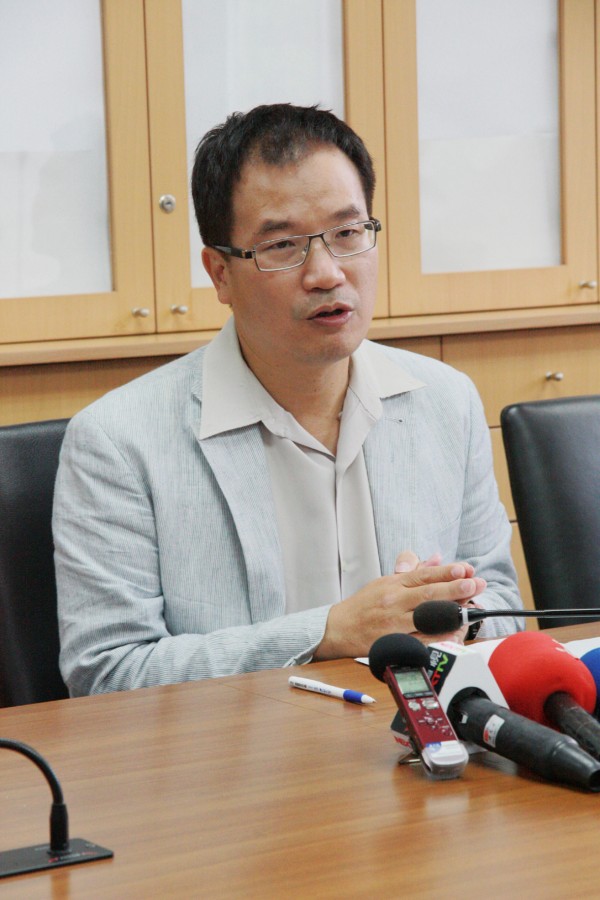|
稿源:2013-9-4/Science Insider/DENNIS NORMILE
 Vindicated. In a press release, environmental scientist Ben-Jei Tsuang said, "I consider it my duty" to share research results with those facing environmental health risks. Vindicated. In a press release, environmental scientist Ben-Jei Tsuang said, "I consider it my duty" to share research results with those facing environmental health risks. |
In a closely watched case, a Taiwanese court today dismissed an industrial conglomerate's defamation suit against an academic whose research suggested that elevated cancer rates in central Taiwan were caused by emissions from the conglomerate's chemical plants.
Despite the favorable ruling, "the case has already had a chilling effect on Taiwan's academic community," claims Severia Lu, an attorney at the Taipei-based Wild at Heart Legal Defense Association, who with others represented the defendant.
The trouble started in December 2010 when Ben-Jei Tsuang, an environmental scientist at Taiwan's National Chung Hsing University in Taichung, started presenting findings at scientific meetings and to government agencies showing elevated cancer rates in Mailiao, in central Taiwan, and linked them to emissions from an industrial complex with plants owned by several companies belonging to the Formosa Plastics Group (FPG). According to Tsuang’s legal team, the complex—encompassing everything from power generation to the manufacture of chemicals, plastics, and synthetic fibers—has 387 chimneys and flues. In April 2012, two FPG companies—Formosa Chemicals & Fibre Corporation and Mailiao Power Corporation—sued Tsuang in Taipei District Court for defamation, seeking $1.3 million in damages and a statement of apology to be carried in four major newspapers.
The court’s rationale for dismissing the suit won’t be known until it releases its full decision in a week or two. In a press release issued after the ruling, National Chung Hsing University called the case "a typical SLAPP (strategic lawsuit against public participation) aiming to silence civil criticism through legal threats." Lu says that "FPG has more than enough money to do its own research to rebut professor Tsuang's claims, but they chose not to do that." She adds that FPG did not comply with the Taipei District Court’s request for emissions data.
By last December, some 1300 Taiwanese and foreign academics signed an online open letter condemning FPG for its suit against Tsuang. Despite that support, Lu says that when a proposed FPG expansion was going through the environmental impact assessment process last year, not a single scholar "dared to speak for the environment."
Tsuang's ordeal is not over. Lu expects the two FPG companies to appeal. They are also pursuing a criminal complaint of aggravated defamation against Tsuang. In a statement posted on its website, FPG said that it would study the verdict and then decide how to respond.
|